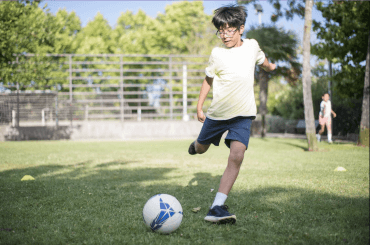“I love the reflections and clicking on the tags because they force me to stop and be mindful about what I’m doing.” Even for someone who considers herself good at time management, Library Information Specialist, Andrea Trudeau, now realizes she may have had an unrealistic view of how she was managing. “I have students reflect on their time spent, but I have never done this myself. Focusable calls me out on that.”
Time may not feel like it’s always on our side, but Focusable wants to flip that thinking. This is why time is at the center of the experience. Rather than relying on lists of things you want to get done, why not think about your days as made up of chunks of time – how will you spend them? This allows you to think not just about work or learning tasks, but personal projects, hobbies, playtime with kids, exercise, etc. In this way, attention management replaces time management.
Andrea comments, “I usually have a list of tasks – but now I’ve gotten to the point that I go into my calendar and block out time.”
Binding yourself to blocks of time with Focusable ensures that you are learning to get the most out of your days – and not just for productivity. Focus is mental health. Andrea often posts on Twitter about the ways she spends her time, and I asked her about a recent post about an afternoon spent playing with her dogs. “It’s funny – I think I just accept that when I ‘get’ free time, I get it. I probably need to get more focused on this piece,” Andrea admits.
Intentionality is another way of looking at focused time. It’s a key method for combating overstimulation in today’s world. “For me, I’m gaining mindfulness while using Focusable, but it has also begun to make its way into my everyday life. It’s rewiring me in a way to be more intentional always – which is amazing.” Now that we’ve introduced tracking in Focusable, you can bring your awareness to the next level. How often do you take a break in your day that’s really a break? Do you go for an evening walk with your phone in one hand? Let’s change that, starting now. Your brain needs rest, and that means saying no to overstimulating experiences.
One of the best things about Focusable is that it’s for everybody. Educators can connect with their students on the effects that overstimulation has on our brains and learning, and they can share their experience trying to manage it.
Andrea recommends first integrating Focusable into your own day to see how you feel afterwards. Then, set the stage for something specific for students to try it out. “I would recommend either a reading session or a writing piece. They will probably need a little bit more time to get started. So really have them take the time to do the embedded reflection videos. This will help ease them into thinking about how they spend their own time and attention.”



